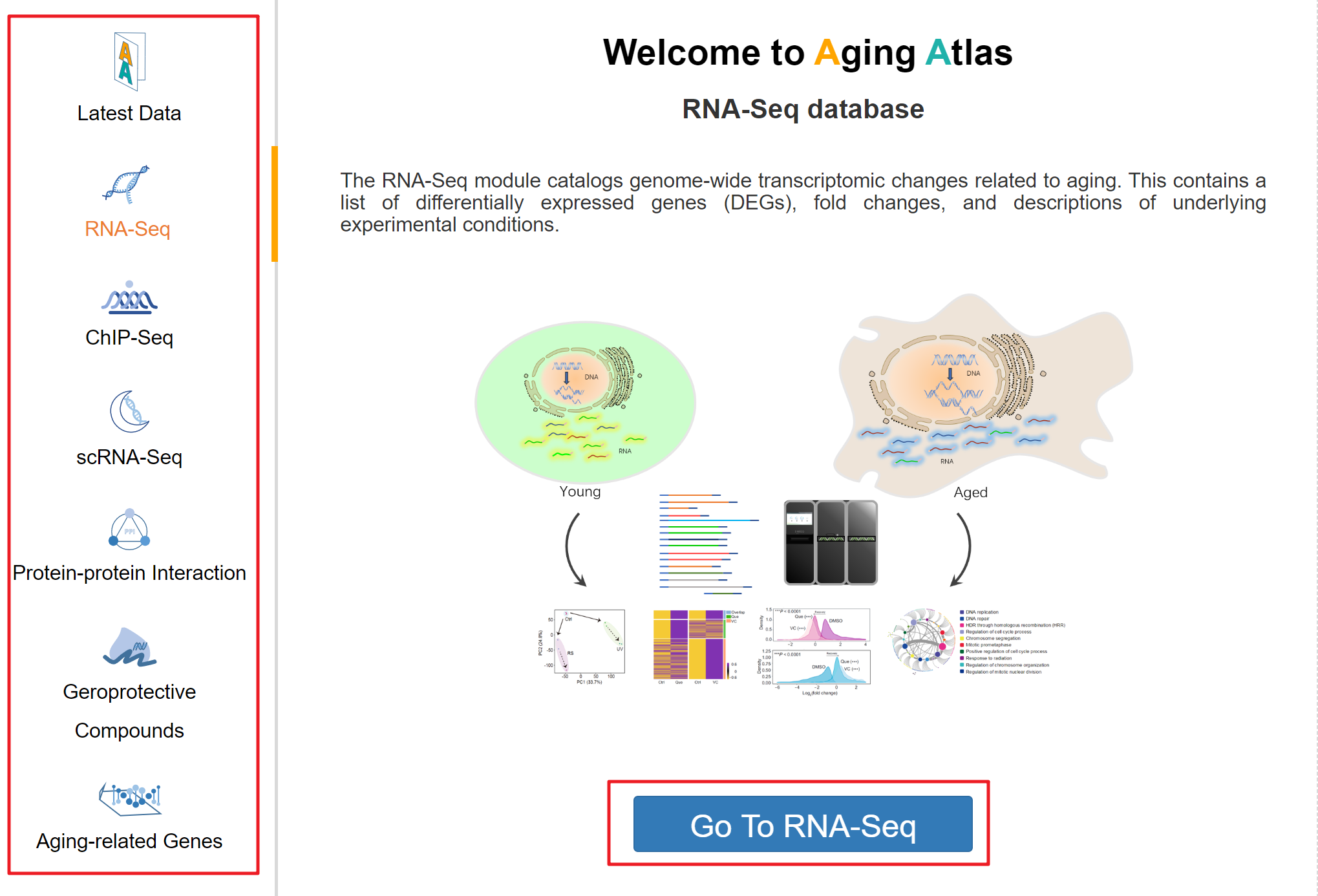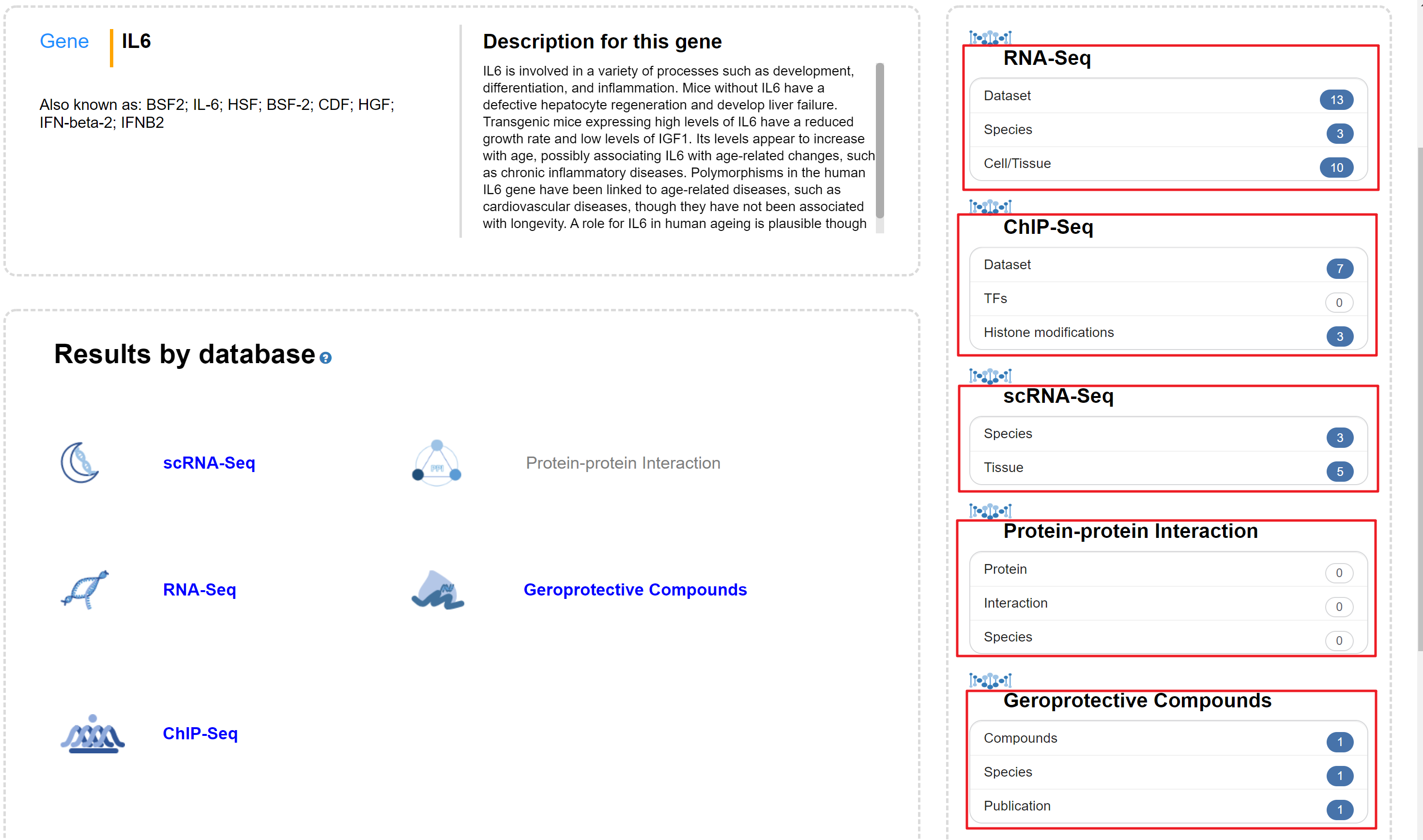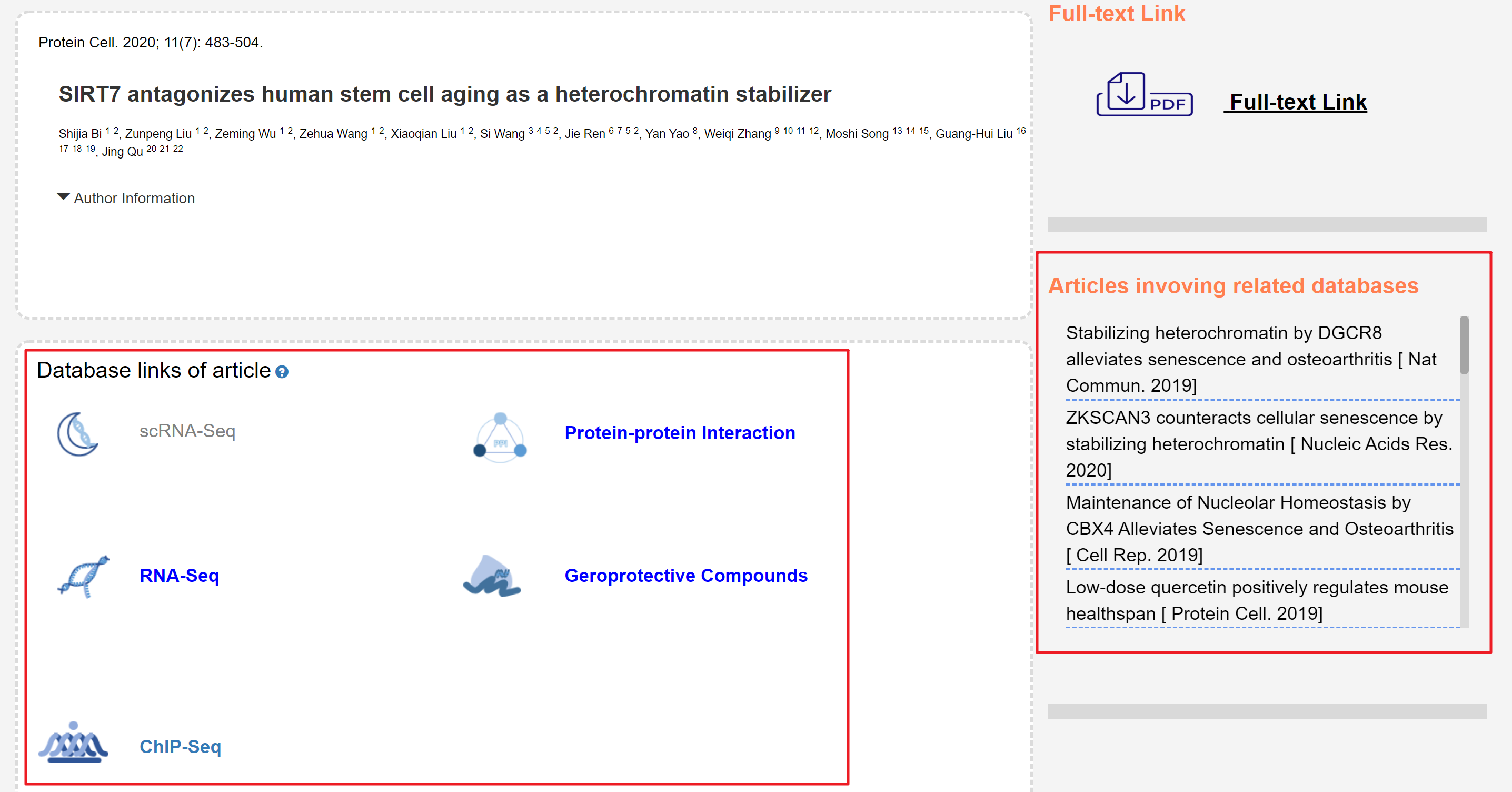Homepage
In the homepage module of Aging-Atlas database, there are several modules including RNA-seq module, ChIP-seq module, scRNA-seq module, Protein-protein Interaction module and Geroprotective Compounds module of choice for users to know about all data and interested results. The function of this module is to help users throughout the world to provide access for to filter data on demand for data collection and data communication more conveniently and quickly.. We classify and sort out bioinformatics data related to aging, and present the results in the form of tables or graphs for users. In addition, this module also provides users access to upload or download data, and feedback, further providing access links to similar databases and related cooperation units, so as to facilitate users to obtain research data on aging. The function of this module will be further optimized our website appearance and layout and the operability will be more user-friendly, in order to provide a better experience for researchers in the field of aging.
There are several methods:
1.1 Select the data module of interest from the left side of the scroll picture on the homepage, and click "Go to xx"(e.g., “Go to RNA-seq”) to enter the corresponding homepage.

1.2 All different database modules of Aging-Atlas are at the bottom navigation bar, select and click to enter the corresponding database homepage you interested.

1.3 If users click “search” to obtain results directly, database types with search results statistics are on the right.

There are several methods:
2.1 (Preferred) Click “advanced” on the left of "search", and then select the corresponding option after entering, and then click "search" to get the search result.

2.2 Click "search" directly with search content (e.g., IL6)to enter the global search result page, select the database type according to 1.3, enter the corresponding result of different homepage of databases, and then filter the required species category.

DOI search can help users obtain all types of omics data contained in the article which users interested, and this page also provide other articles of similar database types on the right for data comparison and analysis. Select DOI search in the search bar, enter the DOI code of the documents included on the webpage, and click "search".


